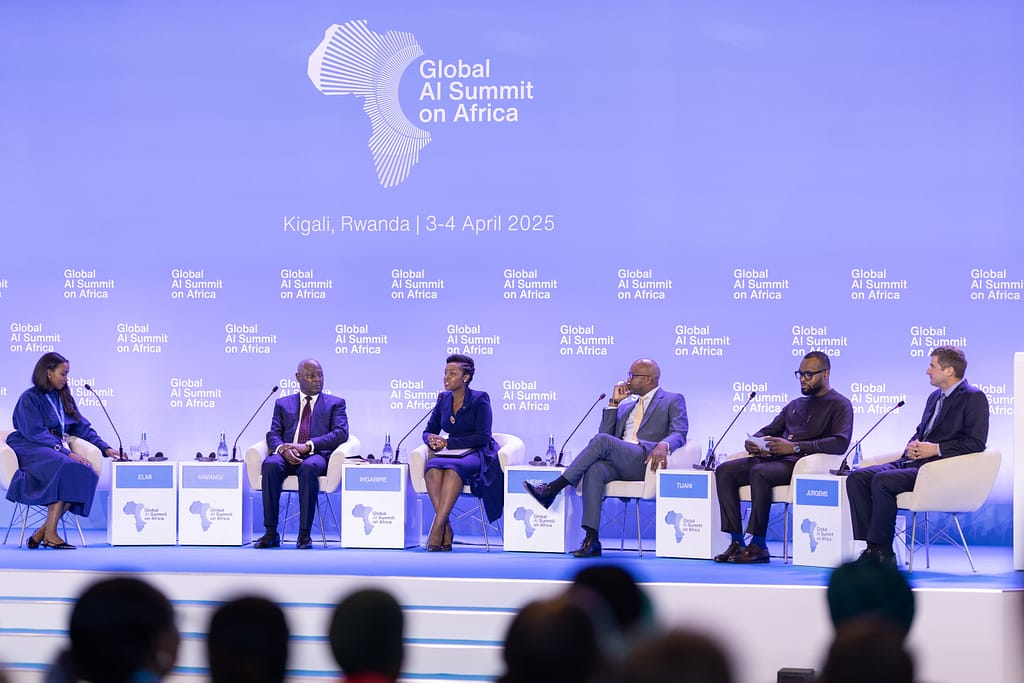
Africa is grappling with a serious water crisis. Agriculture alone uses more than 85% of the available water, while millions of people face severe food insecurity and struggle to access clean water and sanitation services. The challenges are compounded by rapid population growth, urbanization and the escalating effects of climate change, making it crucial for key stakeholders to find sustainable solutions and manage water resources efficiently. It is evident that conventional water research and management methods have fallen short, making smarter and innovative water management not just a buzzword but an essential practice in this rapidly changing technological landscape.
And that’s where Artificial Intelligence (AI) can play a significant role.
AI’s role in water research and development
In April 2025, Rwanda hosted the first Global AI Summit on Africa, gathering over 1,000 leaders, policymakers and innovators to explore the transformative power of artificial intelligence across the continent. The theme, “AI and Africa’s Demographic Dividend: Reimagining Economic Opportunities for Africa’s Workforce,” highlighted AI’s potential in various sectors, including agriculture, healthcare, and infrastructure.
One area that stands to gain immensely from AI integration is water research and management.
AI plays a vital role in this field as it can boost efficiency in water management by optimizing how resources are allocated and improving leak detection. It predicts demand and storage needs, and ensures sustainable usage. These advancements are key to tackling water scarcity, minimizing waste, and preserving the health of our water systems.
Research institutions like the International Water Management Institute (IWMI) and its partners are already harnessing AI-driven tools to forecast droughts, map groundwater, optimize irrigation, predict water availability, improve wastewater reuse, detect leaks, enhance distribution networks and identify policy gaps to strengthen water and climate resilience. These innovations empower governments, farmers, and researchers to make quicker, data-informed decisions, especially in water-stressed regions like the Horn of Africa, the Sahel, and parts of Southern Africa.
At the Summit in Kigali, speakers highlighted Africa’s unique potential to spearhead AI-for-good innovations, particularly in the water and agriculture sectors. With a wealth of young tech talent, increasing internet access and a growing political commitment, there is a latent opportunity for governments, development partners and private investors to team up with research institutions like IWMI to create powerful, AI-driven water solutions.
Scaling existing water solutions through AI
Globally there are, for instance, AI-powered tools that sift through large quantities of satellite data to significantly improve the predictive capacities of flood forecasting models. Other AI-driven platforms on mobile devices monitor irrigation systems in real-time, enabling smallholder farmers to improve water use efficiency and enhance their crop yields. Or platforms that enable early detection of, say, crop pests, which leads to timely action to minimize their impact on crop yield or improved technologies and infrastructure for smallholder farmers. These technologies are already making waves, but to truly scale them, we need solid investment, capacity development, open data policies and cross-border collaboration.
Additionally, AI can significantly improve decision-making by offering data-driven insights for better policy development, and transparency and accountability in water governance. By weaving AI into water research, we can create more resilient and adaptable water systems, which are essential for sustainable development.
The path forward
To truly unlock the potential of AI in water research, Africa and its global partners should invest in digital infrastructure, cultivate local expertise, and encourage collaboration among governments, academia, and the private sector. It’s essential to develop AI models that are specifically designed to tackle Africa’s unique water challenges, taking into account local contexts and the availability of data. Moreover, setting up technical and ethical guidelines, and governance frameworks will help ensure that AI applications in water research are both responsible and fair.
As the continent progresses in the digital realm, embracing AI in water research isn’t just an option — it’s a necessity. The conversations and commitments made at the Global AI Summit lay a strong foundation for further weaving AI into water research, opening doors to sustainable and equitable water solutions throughout Africa.
Rwanda’s role as the host of the first Global AI Summit on Africa sent a clear message: Africa is not merely a passive recipient of AI solutions but a hub for creativity, innovation and leadership. The future of water security in Africa will be hinged on how well we leverage AI to obtain and transform data into actionable insights.
As the challenges related to water and climate intensify, the pressing question is no longer whether governments, scientists and research institutions can afford to invest in AI for water — it’s whether they can afford not to.
















